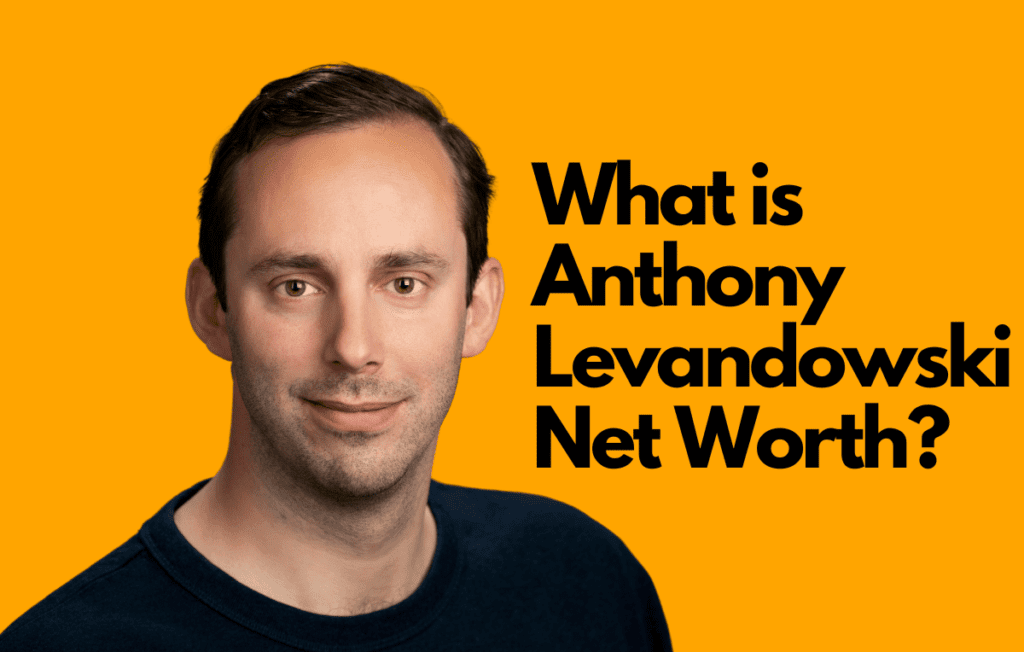

Anthony Levandowski is a name that has been making headlines in the tech industry for quite some time now.
From being at the forefront of the self-driving car revolution to being embroiled in a high-profile lawsuit, Levandowski’s name has been synonymous with innovation and controversy.
But what is Anthony Levandowski’s net worth? In this article, we take a closer look at the man behind the headlines and try to answer this burning question.
Who is Anthony Levandowski?
Anthony Levandowski is an engineer and entrepreneur who has been instrumental in the development of self-driving car technology.
He first rose to fame when he worked for Google’s autonomous car division, which eventually became Waymo.
Levandowski was responsible for developing the Lidar technology that helped Waymo’s self-driving cars navigate the roads safely.
In 2016, Levandowski left Waymo to start his own self-driving trucking company, Otto. Otto was quickly acquired by Uber, and Levandowski became the head of Uber’s self-driving car division.
However, Levandowski’s time at Uber was short-lived, as he was fired in 2017 amid a legal battle with Waymo over alleged trade secret theft.
What is Anthony Levandowski Net Worth?
| Details | Info |
|---|---|
| Full Name | Anthony Levandowski |
| Birthdate | March 15, 1980 |
| Birthplace | Brussels, Belgium |
| Nationality | American and French |
| Education | Bachelor’s and Master’s degree in Industrial Engineering and Operations Research from the University of California, Berkeley |
| Notable Work | Heading Google’s autonomous car division, developing Lidar technology, participating in the DARPA Grand Challenge with the “Blue Team” |
| Net Worth | Estimated to be $100 million (as of 2021) |
| Career | Google, Uber, and Otto |
| Philanthropy | Has made donations to support research in artificial intelligence, the development of autonomous vehicles. |
It’s difficult to determine Anthony Levandowski’s exact net worth, as he has kept his financial information private.
However, it’s estimated that his net worth is somewhere between $50 million and $100 million.
Levandowski’s wealth comes from his work in the tech industry, as well as his investments in various startups.
Levandowski has been involved in a number of startups over the years, including his own self-driving trucking company Otto, which was acquired by Uber for a reported $680 million.
He has also invested in a number of other tech startups, including Neuralink, which was founded by Elon Musk.
In addition to his work in the tech industry, Levandowski is also known for his love of robotics and artificial intelligence.
He has competed in a number of robotics competitions over the years and has even built his own self-driving motorcycle.
Also Read: Adam22 Net Worth, Age, Wife, No Jumper, Everything You Need to Know
Anthony Levandowski’s Early Life and Education


Anthony Levandowski was born in Brussels, Belgium, on March 15, 1980, to a French diplomat mother and an American businessman father. He later moved to California during the mid-1990s.
During his teenage years, Levandowski honed his skills in web development, creating websites for local businesses.
In 1998, Levandowski enrolled at the University of California, Berkeley, where he pursued a Bachelor’s degree and a Master’s degree in Industrial Engineering and Operations Research.
In his freshman year, he founded La Raison, an intranet and IT services company, which generated an impressive $50,000 in its first year.
Levandowski’s passion for engineering and robotics also earned him accolades in his sophomore year when he built the BillSortBot, a robot made from 300 Lego pieces that won first place at the Sun Microsoft robotics competition.
Levandowski’s entrepreneurial spirit continued to flourish, and in 2003, he partnered with Randy Miller to launch Construction Control Systems.
The company focused on building WorkTop, a portable blueprint reader and updater for construction sites.
During the same year, Levandowski and a team of Berkeley engineers, nicknamed the “Blue Team,” embarked on building an autonomous motorcycle for the 2004 DARPA Grand Challenge.
The team spent several years retrofitting a Honda RX motorcycle with video cameras, computers, GPS receiver, an IMU, and motors to power the clutch and steering.
The resulting Ghost Rider motorcycle was the only autonomous two-wheeled vehicle in the competition, and it participated in both the 2004 and 2005 challenges.
Levandowski’s leadership in the Blue Team led to his subsequent success in building PriBot, the first self-driving car to drive on public roads.
Participation in the DARPA Grand Challenge laid the foundation for Levandowski’s career in developing cutting-edge technologies, including Lidar technology, which he later worked on at Waymo.
In 2007, Levandowski donated the Ghost Rider to the Smithsonian National Museum of American History, where it remains today as a testament to his innovative spirit and engineering prowess.
Also Read: Alex Hormozi Net Worth, Profile, and Wife: The Story of a Self-Made Millionaire
Controversies
Waymo and Google Lawsuit
In 2009, Levandowski co-founded Google’s self-driving car program, now known as Waymo, and was a technical lead until 2016.
During his time at Waymo, he was instrumental in the development of the company’s self-driving technology.
However, in 2017, Waymo filed a lawsuit against Levandowski and Uber, alleging that Levandowski had stolen trade secrets from Waymo and used them to develop Uber’s self-driving technology.
The lawsuit was settled in 2018, with Uber agreeing to pay Waymo $245 million and promising not to use Waymo’s technology in its self-driving cars.
Levandowski was not a party to the settlement, and the lawsuit against him continued.
In 2020, he was sentenced to 18 months in prison for stealing trade secrets from Waymo, and 6 months into his sentence, he was pardoned by Donald Trump on Trump’s final day in office.
AI Church
In 2019, Levandowski founded the Way of the Future Church, which aims to “develop and promote the realization of a Godhead based on Artificial Intelligence.”
The church has been criticized for its potentially dangerous views on AI and its potential to replace religion. In 2021, he folded the church.



